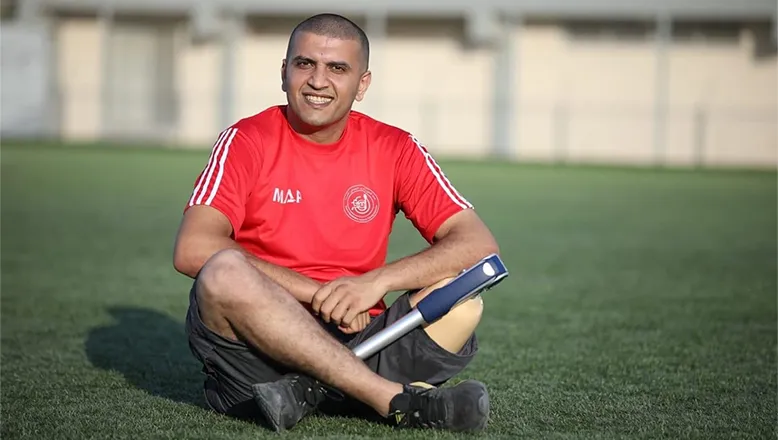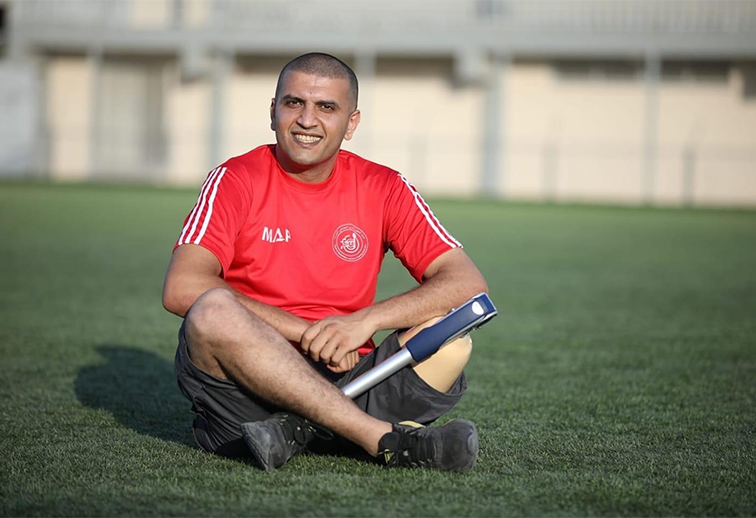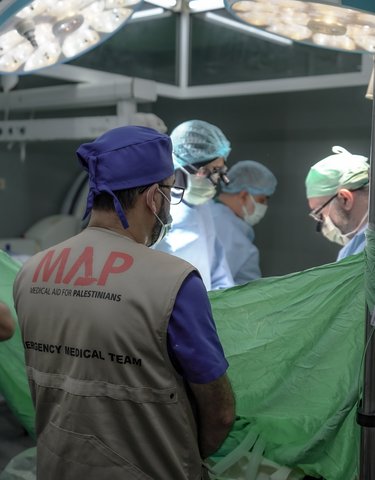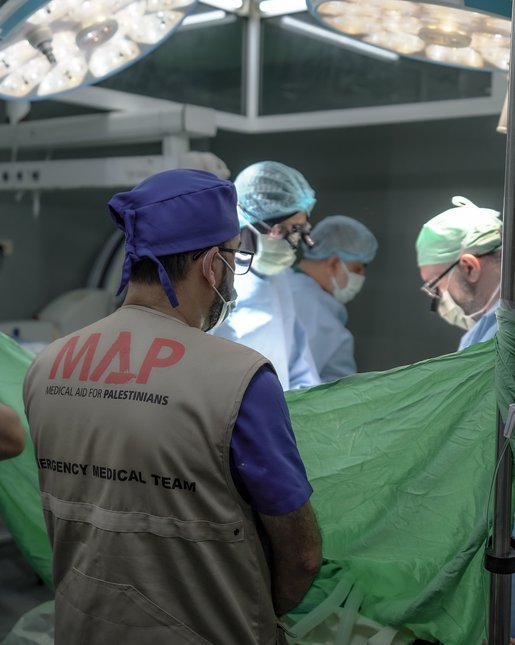“Just because you lose your limb, it doesn’t mean you lose your life”: The advocate rallying for disability rights in Gaza
28 April 2023


Despite these challenges, Medical Aid for Palestinians (MAP) and the Social Developmental Forum (SDF) are working tirelessly to support the needs of people with disabilities and enable them to effectively advocate for their rights.
In this blog, Naji Naji, a board member at SDF and disability rights consultant, shares his experiences growing up with a disability in Gaza and how SDF’s work has improved his knowledge and rights activism.
“My name is Naji Naji, which translates to ‘survivor’ in English. I don't mind being referred to as a survivor. Every day, I survive the circumstances I’m living in and I keep trying.
On 17 July 2007, when I was 15 years old, my life changed forever. I was standing next to my family’s house in Gaza when explosive remnants – unexploded weapons such as artillery shells, mortars, grenades, bombs and rockets – exploded near my leg. My mother rushed out of the house and called an ambulance. At the hospital, doctors decided to amputate my left leg. All I remember is paramedics asking me whether I feel my leg or not, and my dad holding my hand and crying.
After six hours, I awoke to find a box next to the hospital bed with my amputated leg, or what remained of it, inside. I didn’t realise it was my leg until I pulled the bed cover aside and saw only one of my legs. I cried and was shocked for a long time.
As I grew up, I understood my world with one leg, which was the most important factor in accepting and living my life. When I graduated from university, like many Palestinians in Gaza, I could not find a stable job. I began searching for training opportunities to find another turning point in my life. This was when I discovered the ‘WASLA’ Centre for Digital Advocacy.
The ‘WASLA’ Centre was developed through a partnership between SDF and MAP. It works to promote inclusion, empowerment, and advocacy for the rights of people with disabilities, through digital and rights-based trainings.
Before learning about WASLA, I didn't know much about disability issues and rights. I just woke up every day, put on my prosthetic leg and tried to go about my life. WASLA provided me with guidance and training to produce digital content, and conduct advocacy and awareness-raising. For the past two years, I have devoted my time to advocating for the rights of people with disabilities.
Through WASLA, I have developed my communication skills and learned a lot about disability rights. The training I received was delivered by young, passionate people, who taught me how to confidently advocate my cause as a person with a disability. Now I consider myself a social activist thanks to WASLA. Every year on 17 July, the date that changed my life, I film a video at the WASLA Centre and share it on social media to raise awareness about people with disabilities.
In 2021, I established a cycling club for people with amputations to cycle across Gaza. Doing sports is so important for my mental and physical health, so this was an opportunity to promote the benefits of cycling while also highlighting that people with disabilities can actually cycle
My bicycle is my favourite thing and I cycle every morning. Last year, on the International Day of People with Disabilities, I participated in a sports campaign designed and carried out by members of the WASLA Centre to advocate for the rights of people with disabilities to have full access to all sports facilities. I love all sports – I use my crutches to play football and when I run marathons.
I am now 30 years old and I want everyone who may be facing or has undergone an amputation to know that you can still live a full life. Just because you lose your limb, it doesn’t mean you lose your life. My advice for anyone undergoing intensive rehabilitation for amputation is to be who you are, try to motivate yourself and discipline your mind. There will be bumps and bruises along the way but, overall, it is worth the challenge.”
To support the vital work of MAP and our partners in upholding the rights and dignity of people with disabilities in Palestine and Lebanon, please make a donation today.

